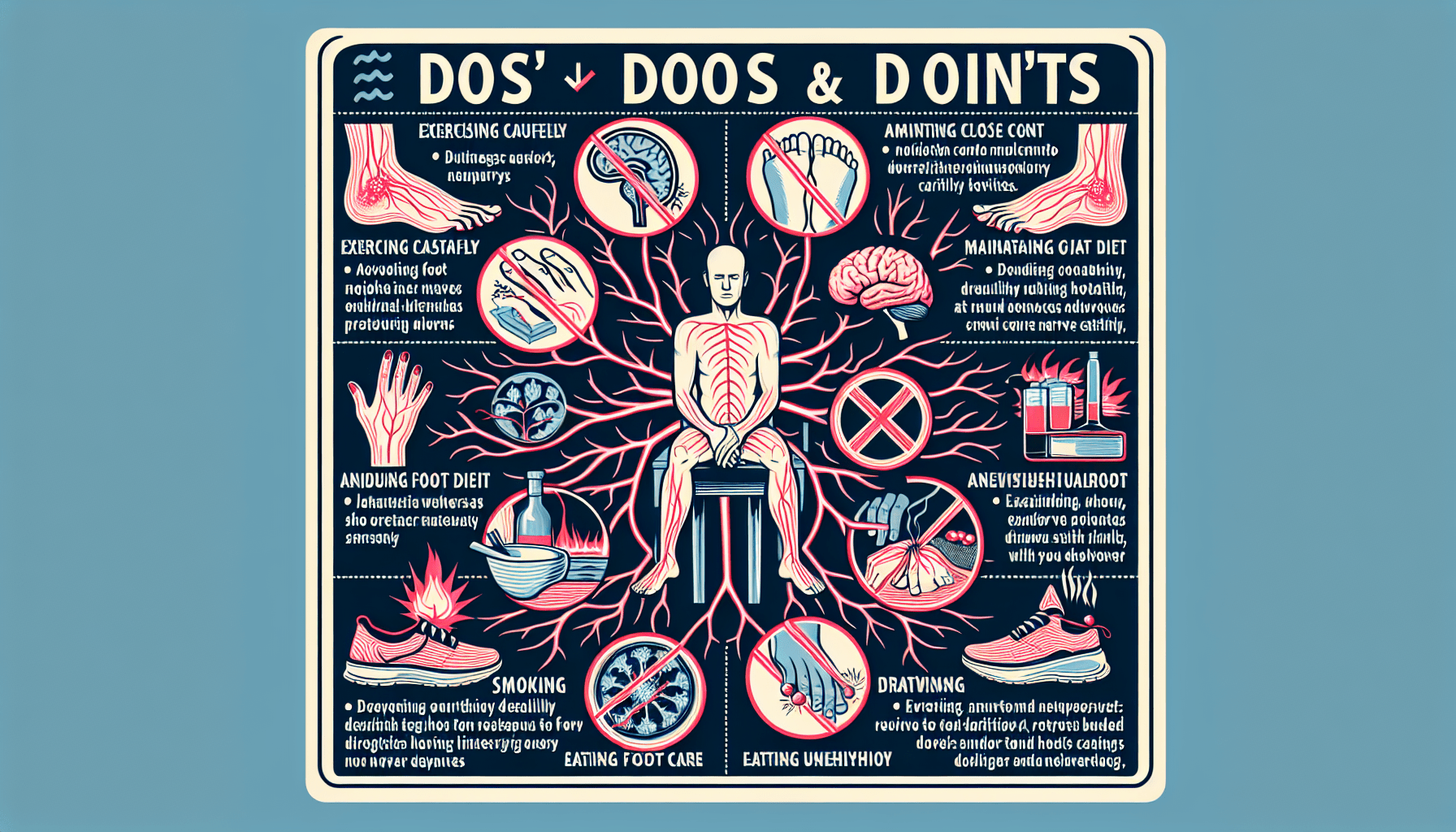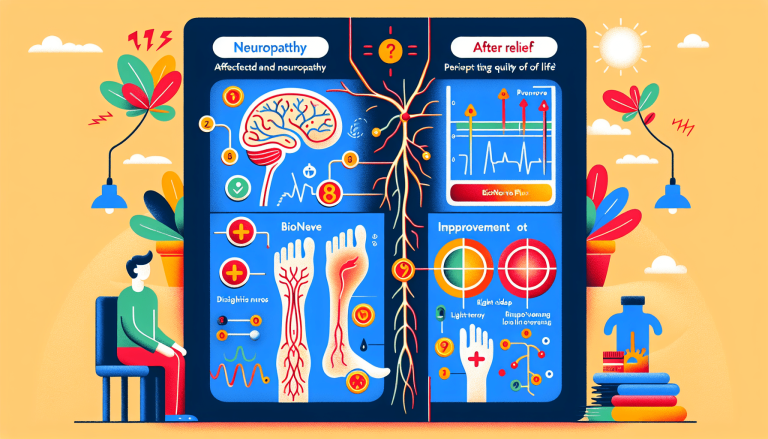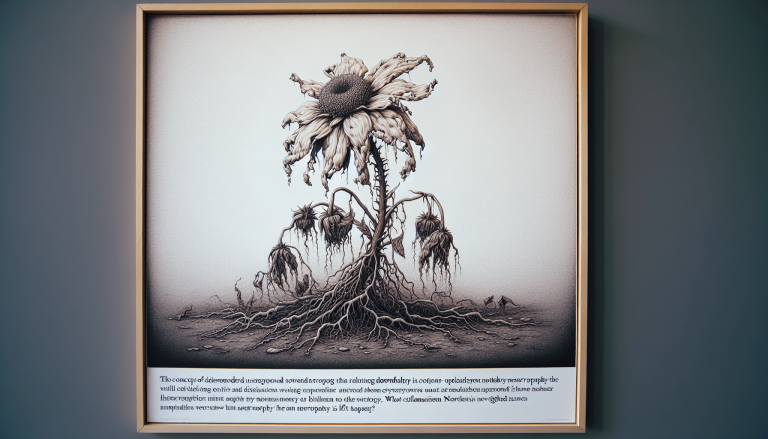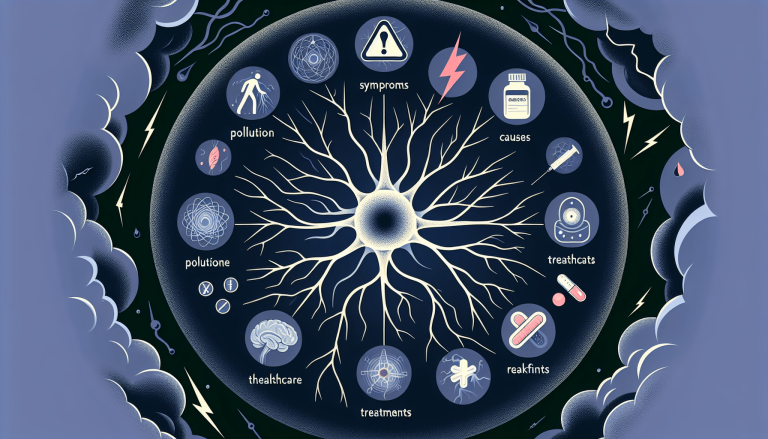What Activities Should Be Avoided With Neuropathy?
Living with neuropathy can be challenging, but understanding what activities to avoid can help manage the symptoms and maintain a better quality of life. In this article, we will discuss some activities that individuals with neuropathy should steer clear of to prevent aggravating their condition. By being aware of these activities, you can take proactive steps towards minimizing discomfort and maximizing your overall well-being.
High-Impact Exercises
When living with neuropathy, it is important to avoid high-impact exercises that put excessive strain on the nerves. Running, for example, can cause jarring movements that may further irritate already damaged nerves. Jumping rope and aerobic dance routines can also involve repetitive high-impact movements that increase the risk of nerve damage or exacerbate existing symptoms. Instead, consider low-impact exercises such as swimming or cycling, which provide cardiovascular benefits without placing excessive stress on the nerves.
Activities with Repetitive Movements
Engaging in activities that require repetitive movements for extended periods can worsen neuropathy symptoms. Typing or using a computer for long periods may strain the nerves in the hands and wrists, particularly if the ergonomics of your setup are less than ideal. Similarly, playing musical instruments, knitting or crocheting, and using hand tools that involve repetitive motions can exacerbate symptoms. It is important to take regular breaks and practice good posture to prevent further nerve damage.

Activities Involving Vibration
Certain activities that involve exposure to vibration can aggravate neuropathy symptoms. Using power tools, such as drills or jackhammers, can transmit intense vibrations through your hands and arms, potentially causing further nerve irritation. Similarly, using vibrating massage devices or participating in activities that involve riding motorcycles or bicycles on rough terrain can worsen symptoms. If you have neuropathy, it is advisable to limit or avoid these activities and seek alternatives that minimize vibration exposure.
Exposure to Extreme Temperatures
Extreme temperatures can be particularly uncomfortable and even dangerous for those with neuropathy. Hot baths or showers may lead to burns, as nerve damage can affect temperature sensitivity, making it difficult to detect when the water is too hot. Similarly, sitting too close to a fireplace or heater can result in burns or excessive heat exposure. Walking barefoot on hot pavement or sand can also lead to burns, as the nerve damage may inhibit your ability to feel heat. Additionally, scalding-hot drinks can cause injury. It is essential to be cautious and take steps to prevent temperature-related accidents.
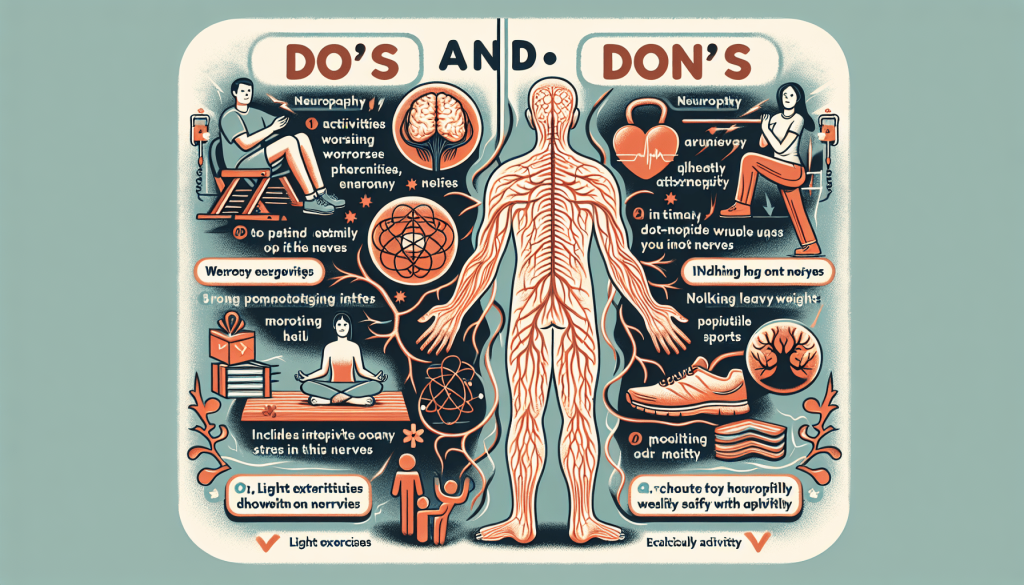
Poorly Fitting Shoes
Wearing shoes that do not fit properly can worsen neuropathy symptoms. High heels, for instance, can increase pressure on the nerves in the feet, which may lead to pain and discomfort. Pointed-toe shoes can also compress the toes and aggravate nerve damage. Similarly, tight or narrow shoes can restrict blood flow and cause nerve irritation. It is crucial to choose shoes that provide proper cushioning and support, allowing for optimal comfort and reducing the risk of exacerbating neuropathy symptoms.
Activities with Risk of Injury
Activities that pose a high risk of falls or injury should be avoided by individuals with neuropathy. Contact sports like football or hockey can increase the likelihood of accidents that may lead to nerve damage or worsen existing symptoms. Extreme sports such as rock climbing or skydiving also carry inherent risks that can be detrimental to individuals with neuropathy. Additionally, heavy lifting without proper technique can strain the nerves and potentially cause further damage. It is essential to prioritize safety and engage in activities that minimize the risk of injury.

Prolonged Sitting or Standing
Prolonged periods of sitting or standing without breaks can worsen neuropathy symptoms. When you maintain the same position for extended periods, you restrict blood flow and increase the pressure on affected nerves. Crossing your legs while sitting can also compress nerves and aggravate symptoms. To alleviate discomfort and reduce the risk of further nerve damage, it is important to take frequent breaks, change positions regularly, and maintain proper posture.
Activities Requiring Fine Motor Skills
Activities that require precise and intricate movements can be challenging for individuals with neuropathy. Writing for extended periods may strain the nerves in your hands and cause pain or numbness. Similarly, tasks like tying shoelaces or buttoning small buttons can be difficult due to reduced sensation or coordination. Using small or delicate tools may also exacerbate symptoms. It is advisable to take breaks and find alternative methods or assistive devices to minimize the strain on your nerves while performing these activities.
Smoking and Alcohol Consumption
Smoking tobacco and excessive alcohol consumption can have detrimental effects on overall health and exacerbate neuropathy symptoms. Smoking narrows blood vessels, reducing blood flow to the nerves and impairing their function. This can lead to increased pain and inflammation. Similarly, excessive alcohol intake can disrupt nerve function and exacerbate neuropathy symptoms. It is important to prioritize a healthy lifestyle and avoid smoking and excessive alcohol consumption to minimize the impact on your nerves and overall well-being.
Activities that Aggravate Nerve Pain
Certain activities or stimuli can aggravate nerve pain in individuals with neuropathy. Prolonged exposure to loud noises can increase stress levels and contribute to nerve sensitivity. Bright or flickering lights may cause discomfort or even trigger migraines in some individuals. Stressful situations and extreme emotional distress can also amplify neuropathy symptoms. It is important to manage stress levels, create a calm and supportive environment, and avoid excessive exposure to stimuli that can worsen nerve pain.
Living with neuropathy requires careful consideration of daily activities and habits. By avoiding high-impact exercises, activities with repetitive movements, exposure to extreme temperatures, poorly fitting shoes, high-risk activities, prolonged sitting or standing, and activities that worsen nerve pain, you can better manage your symptoms and maintain a higher quality of life. It is advisable to consult with a healthcare professional for personalized guidance and recommendations tailored to your specific condition. With proper care and attention, you can minimize the impact of neuropathy on your daily routine and overall well-being.
Additional Resources

Are you taking B12 for nerve pain?

